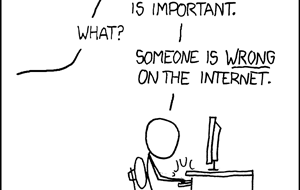
Across the globe, there are a series of political movements and factions pushing an agenda that has not appeared on the scene for many years. Sometimes corresponding to various forms of populism, this agenda doesn?t quite fit anywhere on the existing Left-Right political spectrum, as it is found in most Western countries. Appealing to traditional axes for the identification of political ideologies, this agenda might be very broadly described as socially conservative on the one hand, making traditional liberals uncomfortable, and fiscally liberal on the other hand, making normal conservatives just as uncomfortable.
In America, for decades, a neat division between those who are socially and fiscally conservative and those who are socially and fiscally progressive has prevailed ? the Right and the Left respectively, embodied in the Republican and Democratic parties. The minority of those who have transgressed this conventional division and appeared in both Republican and Democratic contexts has consisted mainly of Libertarians: functionally, they are socially progressive and fiscally conservative. But so far, very little attention has been paid to those who identify by the fourth combination: socially conservative and fiscally progressive.
These terms are all sufficiently broad as to each include a wide variety of differing agendas and ideologies and emphases. Many on the Right in America identify as such because they are primarily interested in free markets and standard capitalist ideology; others because they are interested in socially conservative values such as opposition to abortion, gay marriage, transgenderism, etc. Equally, many on the Left identify as such because they are concerned with identity politics, transgender rights, legalizing abortion, etc; others because they are interested in wealth redistribution and equality, even going as far as identifying (accurately or inaccurately) as socialists. But generally it has been taken for granted that if you identify on the basis of your social values, you will most likely jump on the train of the corresponding economic values, or vice versa (with the possible exception of the Libertarians).
But for those who identify as socially conservative and fiscally liberal, things are different. For many of these people, the division between social and fiscal is meaningless in the first place: these things are inseparably linked. This realization seems to be budding anew among those who have previously identified with either the Left or the Right, but have found their respective establishments lacking on either social or economic fronts. On the Right, the conservative talk show host Tucker Carlson has caused quite a stir by claiming that the conservative emphasis on the family and family moral values cannot be subordinated to the exaltation of free market capitalism as the be-all-and-end-all of the ?American Dream?; rather, he claims, the market must be structured to serve the family. But he observes, in language that almost smacks of Bernie Sanders style socialism, the fact is that the average working class family in America feels oppressed by the very forces of market capitalism of which American conservatives have been the primary advocates for decades. This amounts to a call for a more progressive form of economic policy.
The working class in the U.S. has in many ways been split between the followers of Donald Trump ? who can be credited with puncturing the bubble of standard neo-conservative and neo-liberal elitism and inciting a Right-wing brand of working-class populism ? and the followers of Bernie Sanders, who has instigated what appears to be a far-Left ?socialist? uprising in American politics. In the wake of Sanders, figures such as Alexandria Ocasio-Cortez and Elizabeth Warren have made ripples in the political waters. By no means socially conservative themselves, these Leftist figures have employed the rhetoric of protecting families and children (stopping short, however, of protecting the unborn against abortion), and have attracted the attention of many who would indeed identify as socially conservative ? among them the Catholic Left-wing journalist Elizabeth Bruenig, who has promoted a brand of ?Catholic socialism? in her columns at the Washington Post.
Bruenig and her policy-wonk husband, Matt Bruenig, have identified themselves as democratic socialists, and have proposed Left-leaning policies such as a child allowance, explicitly connecting such a policy to socially conservative concerns for de-incentivizing abortion. Such a policy, they have also pointed out, has the benefit of appealing to feminist demands for women?s wages and conservative family values. These proposals evidence the possibility of a political philosophy and a political program which transcends traditional Left and Right, or liberal/progressive and conservative, categories.
Outside of America, in Europe, other movements generally considered Right-wing have adopted similar policies usually thought to be socialist in nature. In Hungary, prime minister Viktor Orban is said to have ?out-socialized the socialists? by providing strong welfare benefits to middle class families, with the intention of mitigating the effects that free market capitalism tends to have on such families. Orban is also concerned to fight the trend of a declining population in Hungary. The conservative Law and Justice government of Poland has instituted similar welfare policies targeted toward families ? policies usually thought to be characteristic of Left-wing politics such as those practiced by the welfare states of Scandinavian countries like Norway and Finland, or those proposed by the Democratic Socialists of America. These changes in Hungary and Poland have coincided with a strong shift away from liberal democracy and towards illiberal democracy, and a re-embracing of national cultural identity and traditional Judaeo-Christian social values.
What can we make of these phenomena? How do we interpret it? What are its consequences for the development of political and economic dialogue in the current context? What should we even call it?
These are difficult questions that are only beginning to re-emerge. But it is worth noting that this peculiar combination of political commitments is not entirely new. In fact it long predates the conventional division between the Right and the Left that characterizes modern America at least???and the division between conservatism and liberalism that characterizes ideological polarization worldwide. Prior to the current polarizations, this ideology had many names, corresponding to its own many varieties and extremities. In its most radical and oppressive form, this combination was put to the service of nationalism and a sense of absolute national supremacy: Fascism. This was the case in Germany and Italy, certainly; it is disputed whether it was the case in Portugal as well.
But it has appeared in much less oppressive, and hardly nationalistic, forms as well. In theoretical presentation, its most important and benign form was ? and continues to be ? the tradition of Catholic Social Teaching. This may be news to many Catholics, who are often swayed by the dominant secular ideologies; yet it is undeniably the case that the Catholic Church has held itself far above the division between the Left and the Right, maintaining a firm commitment to ?socially conservative? values ? the primacy of the family, the sanctity and indissolubility of marriage between a man and a woman, the gift of children ? while also renouncing capitalism, which leads the powerful and the greedy to take advantage of the powerless and to privilege their own private good over the common good, which is the good of all men, and of the whole earth. The social and political program supported by the Church has always involved charity and an option for the poor, and the state as the partner of the Church is exhorted to take part in the her mission to promote the material and spiritual well-being of all.
It is high time that both conservatives and liberals pay attention to the voices of those who, for the sake of their families and their children, stand in need of consistent and charitable political institutions that look after the genuine welfare of all. Ideological dichotomies will fall away under such an outlook; the only true ideology can be one which prioritizes what is good, always and everywhere, for everybody. It doesn?t matter who they are???man, woman; child, fetus; worker, owner???they all deserve to have their welfare prioritized by the political institutions that are set over them. This is not two projects: one ?social? and another ?fiscal? or ?economic.? It is one project. You can?t be socially pro-life and pro-family if you don?t also economically prioritize life and the family; and you can?t economically promote the welfare of working class families if you don?t also promote the social values of families???such as the procreation and rearing of children. These things are inherently linked, in fact they are almost the same thing; any political ideology or faction that separates them does a grave disservice to humanity.


